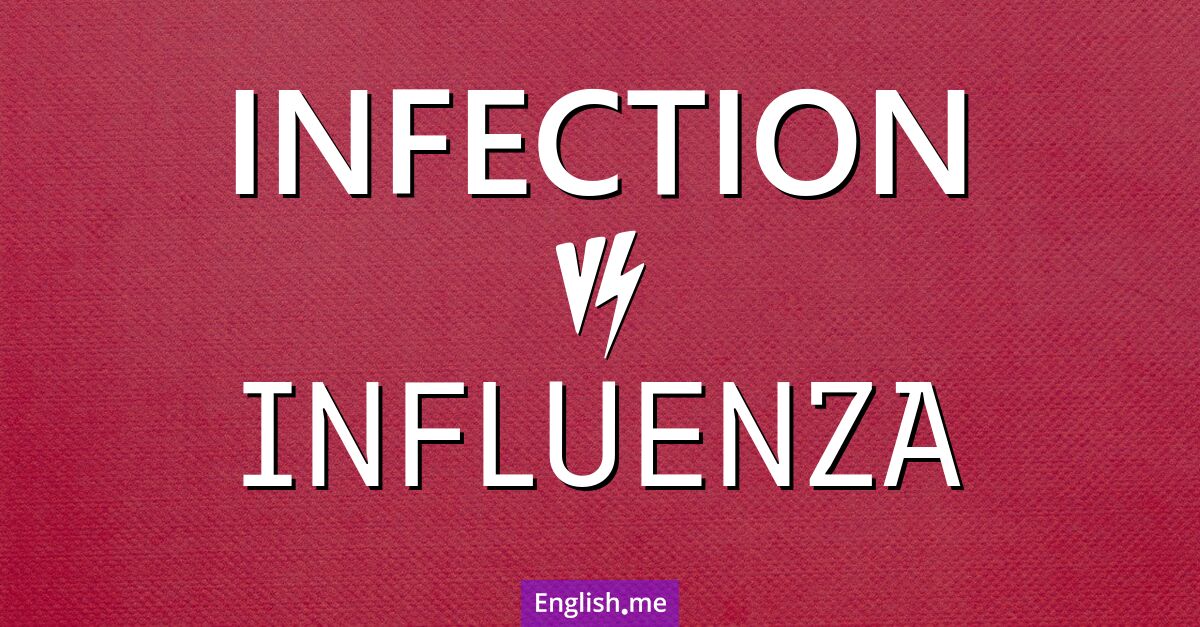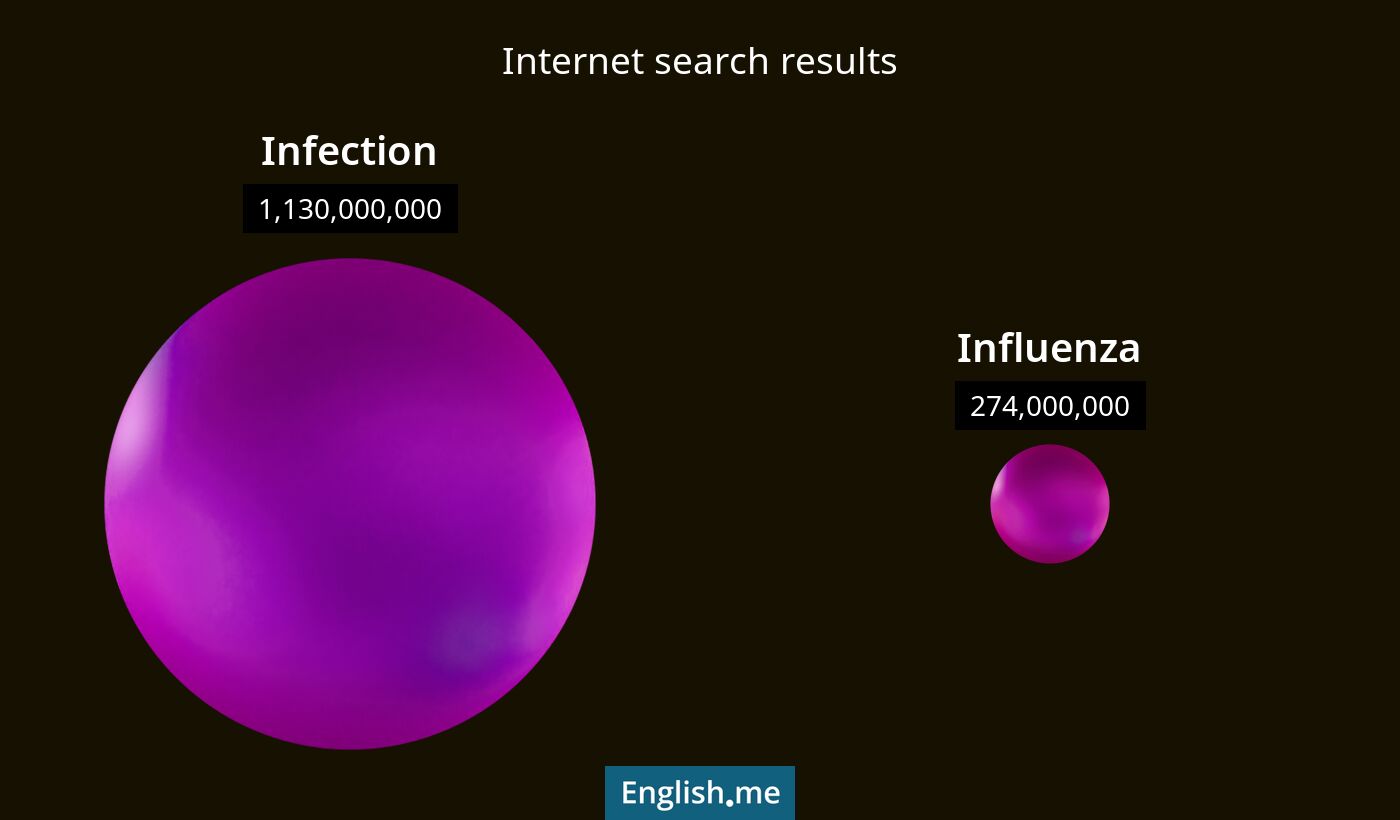Exploring connections: "infection" vs. "influenza"
Reviewed and edited by  Lloyd Cooper 20/11/2024, 02:24
Lloyd Cooper 20/11/2024, 02:24
English.me team member

 What is similar?
What is similar?
Both "infection" and "influenza" are related to health and can involve the spread of pathogens in the body. They are terms commonly used in medical contexts.
 What is different?
What is different?
"Infection" is a broad term referring to the invasion and multiplication of microorganisms such as bacteria, viruses, and parasites in the body, which can cause disease. "Influenza", often called the flu, is a specific type of viral infection caused by the influenza virus, characterized by fever, aches, and respiratory symptoms.
 Which one is more common?
Which one is more common?

 Examples of usage
Examples of usage
Infection- The doctor diagnosed him with a bacterial infection.
- Proper hygiene can help prevent the spread of infection.
- She is taking antibiotics to treat her infection.
- He was bedridden for a week with influenza.
- A vaccine is available to prevent influenza outbreaks.
- The symptoms of influenza include fever and coughing.

 English
English español
español française
française italiano
italiano deutsche
deutsche 日本語
日本語 polski
polski česky
česky svenska
svenska Türkçe
Türkçe Nederlands
Nederlands